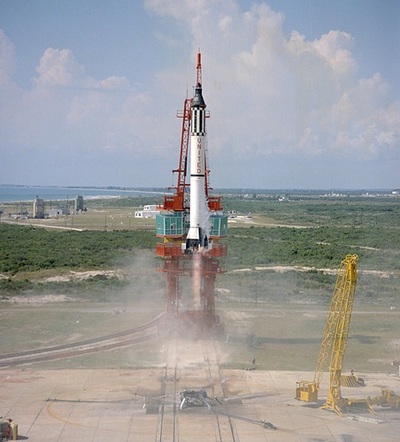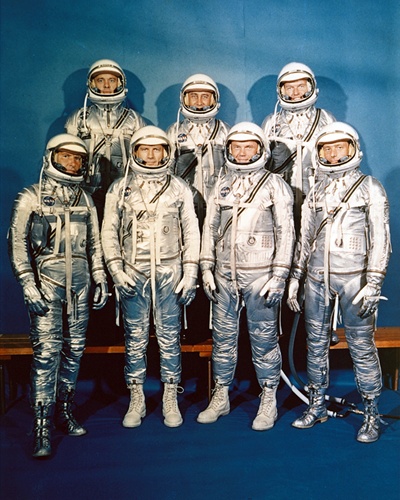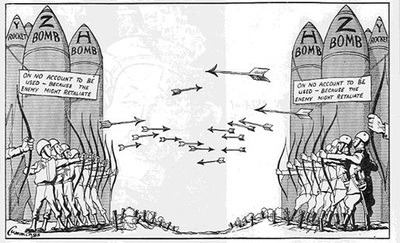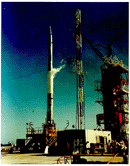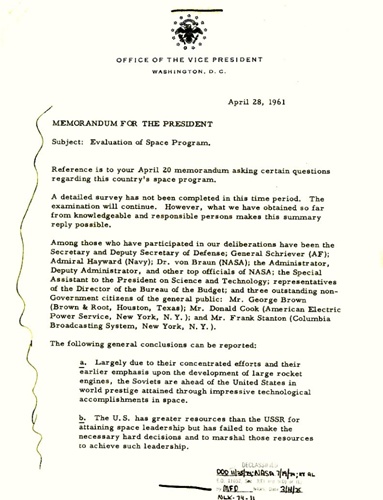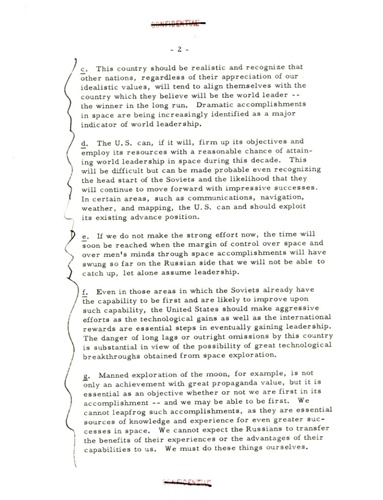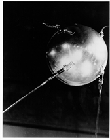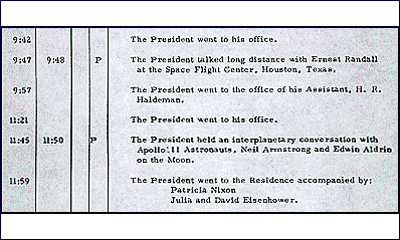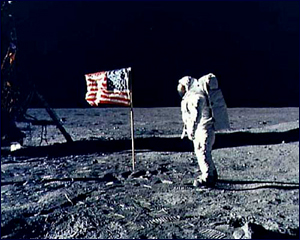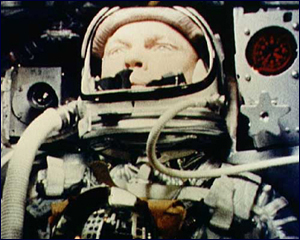"Against the dark background of the atomic bomb, the United States does not wish merely to present strength, but also the desire and the hope for peace."
- Dwight D. Eisenhower at the United Nations, 8 December 1953
Post WWII America is marked by efforts to return life to normal in a brand new world. WWII brought the US clearly onto the world stage in a leading role. Returning veterans utilize stockpiled wages and funding from the GI Bill to attend college, buy a piece of the American Dream, and start families in record numbers. Surplus income is converted into ownership of cars, TVs, and private bomb shelters. Mom's life is made easier with modern conveniences such as the automatic washing machine and vacuum cleaners. Fast food, motels, and airline campers pop up along the new Interstate Highway system to allow travelers the comforts of home. And teenagers earn their own label. Ownership of a hot rod or jalopy allowed young Americans to socialize together with more freedom. The free enterprise system quickly taps into this consumer group with new forms of music, fashion, and entertainment emerging to market the latest and greatest fads.
Though the 1950s are referred to as the "Happy Days", there were dark shadows. WWII ends with Europe divided between democratic and communist nations. The US finds itself in a "Cold War" standoff with the Soviet Union. This diplomatic war of words uses the Security Council of the UN to publicly debate philosophical differences. Tensions between the two superpowers flare up in Korea, Berlin, and Cuba. The unknowns of global conflict in the Atomic age are evident as school children practice duck and cover drills while their parents dig up the back yard for the new bomb shelter. But not all the post-war shadows are foreign in nature. Senator McCarthy and the House Un-American Activities Committee (HUAC) become the face for efforts to protect the US from the expansion of communism. Hollywood finds many of their producers, directors, writers, and actors blacklisted for suspicious activities. Then McCarthy accuses Eisenhower's army of harboring spies. This time, the President demonstrates less patience with maintaining status quo. African-American solders, who experienced multicultural societies in Europe, return home once again facing a segregated South. This time, they have less patience with maintaining status quo. Women were once again sent home from the factories and offices in order to provide jobs for the returning soldiers. This time, they have less patience with maintaining status quo. Then November 22, 1963 abruptly ends Camelot. This time, society begins to show less patience with maintaining status quo.
Though the 1950s are referred to as the "Happy Days", there were dark shadows. WWII ends with Europe divided between democratic and communist nations. The US finds itself in a "Cold War" standoff with the Soviet Union. This diplomatic war of words uses the Security Council of the UN to publicly debate philosophical differences. Tensions between the two superpowers flare up in Korea, Berlin, and Cuba. The unknowns of global conflict in the Atomic age are evident as school children practice duck and cover drills while their parents dig up the back yard for the new bomb shelter. But not all the post-war shadows are foreign in nature. Senator McCarthy and the House Un-American Activities Committee (HUAC) become the face for efforts to protect the US from the expansion of communism. Hollywood finds many of their producers, directors, writers, and actors blacklisted for suspicious activities. Then McCarthy accuses Eisenhower's army of harboring spies. This time, the President demonstrates less patience with maintaining status quo. African-American solders, who experienced multicultural societies in Europe, return home once again facing a segregated South. This time, they have less patience with maintaining status quo. Women were once again sent home from the factories and offices in order to provide jobs for the returning soldiers. This time, they have less patience with maintaining status quo. Then November 22, 1963 abruptly ends Camelot. This time, society begins to show less patience with maintaining status quo.
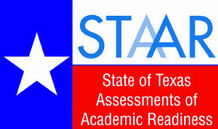
What to know for the EOC
- Identify the major eras in U.S. history from 1877 to the present and describe their defining characteristics
- Explain the significance of the following years as turning points: 1957 (Sputnik launch ignites U.S.-Soviet space race)
- Describe the U.S. responses to Soviet aggression after World War II, including the Truman Doctrine, the Marshall Plan, the North Atlantic Treaty Organization, the Berlin airlift, and John F. Kennedy;'s role in the Cuban Missile Crisis
- Describe how Cold war tensions were intensified by ten arms race, the space race, McCarthyism, and the House Un-American Activities committee (HUAC), the findings of which were confirmed by the Venona Papers
- Explain reasons and outcomes for U.S. involvement in the Korean War Conflict and its relationship to the containment policy
- Identify and explain reasons for changes in political boundaries such as those resulting from statehood and international conflicts
- Identify the causes of prosperity in the 1950s, including the Baby Boom and the impact of the GI Bill (Servicemen's Readjustment Act of 1944), and the effects of prosperity in the 1950s such as increased consumption and the growth of agriculture and business
- Describe the economic impact of defense spending on the business cycle and education priorities from 1945 to the 1990s
- Evaluate the pros and cons of U.S. participation in international organizations and treaties
- Describe both the positive and negative impacts of significant examples of cultural movements in art, music, and literature such as the Beat Generation, rock and roll, and country and western music on American society
- Analyze how scientific discoveries, technological innovations, and the applications of these by the free enterprise system, including those in transportation and communication, improved the standard of living in the United States
|

